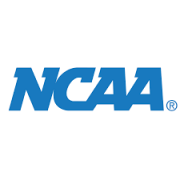HEAD COACH CONTROL AND THE DUTY TO MONITOR ACTIVITIES OF INDIVIDUAL STAFF MEMBERS THROUGH THE EYES OF THE COMMITTEE ON INFRACTIONS
The legislation surrounding head coach control has been in the lives of compliance processionals for the better part of five years. Since its inception, much of the focus has centered on how a head coach can satisfy its requirement by promoting an atmosphere of compliance.
Bylaw 11.1.1.1 states:
“An institution’s head coach is presumed to be responsible for the actions of all institutional staff members who report, directly or indirectly, to the head coach. An institution’s head coach shall promote an atmosphere of compliance within his or her program and shall monitor the activities of all institutional staff members involved with the program who report, directly or indirectly to the coach.”
As a result, Bylaw 11.1.1.1 places two affirmative duties on a head coach:
- To promote an atmosphere of rules compliance; and
- To monitor those individuals in their program who report to them.
NCAA Constitution 2.8.1 requires each member institution to monitor its athletic programs and the Committee on Infractions (“COI”) has extended that duty to head coaches (See Syracuse University, 2015). So, what does it mean to monitor? Monitoring does not mean a head coach is required to conduct a formal investigation. Instead, head coaches are likely required to seek additional information and report the matter to the compliance office or other appropriate staff member when a situation requires it. The COI has been clear in stating that head coaches are required to be active participants in an institution’s monitoring efforts. What follows is a brief review of cases from the COI where a head coach failed to monitor the activities of his or her staff.
University of Louisville (2017)
The COI found the head men’s basketball coach failed to monitor the activities of the former operations director. The COI found that the head men’s basketball coach created a residential environment where violations occurred and trusted the operations directors to abide by NCAA rules and delegated monitoring of the operations directors to the assistant coaches. However, the assistant coaches later testified they did not believe it was part of their job to oversee the operations director.
“The former operations director attended staff meetings and participated in rules education sessions, but was not specifically trained in any manner regarding the duties the head coach assigned him in Minardi Hall.”
University of the Pacific (2017)
The head men’s basketball coach recruited prospective student-athletes from two-year institutions who utilized distance learning courses to meet transfer and eligibility requirements. During his interview, the head men’s basketball coach admitted to failing to monitor the activities of the assistant coaches and he let them “get out of control.” Specifically, the head men’s basketball coach wrote to the assistant coaches and told them it was their job to get it done with regard to the distance learning courses. Afterwards, the assistant coaches were left to accomplish that task by whatever means necessary. The COI concluded that the head men’s basketball coach failed to monitor his staff due to his own acknowledgment of a lack of control over them.
Prairie View A&M University (2017)
An assistant men’s basketball coach assisted a student-athlete in enrolling in an online class for eligibility. The head men’s basketball coach knew the student-athlete would have difficulty paying for the class, but failed to question the assistant coach or student-athlete on who actually paid for the class. This was despite the fact that the head men’s basketball coach received information that a third-party paid for the course on two separate occasions.
The COI concluded the head men’s basketball coach violated the head coach control legislation when he failed to follow up with the assistant men’s basketball coach or on who paid for the course despite receiving credible information that a third-party had done so.
Lessons
- Do no rely heavily on your staff to ensure NCAA rules and regulations are being followed (University of Louisville);
- Head coaches have a duty to follow up on information or situations that come to their attention that might indicate a violation has occurred or will occur (Prairie View A&M; University of the Pacific); and
- Ensure staff member have received specialized rules education and/or training for any duties assigned to him or her (University of Louisville).
Action Plan
- Head coaches should assign a member of his or her staff a “compliance monitoring” component to their duties;
- Head coaches should require staff members to receive specialized education and/or training for those areas assigned to them;
- Head coaches should regularly follow up with each staff member and review those compliance areas assigned to them and seek additional information when necessary; and
- Head coaches should report any items of concern to the compliance office and/or athletics administration.

